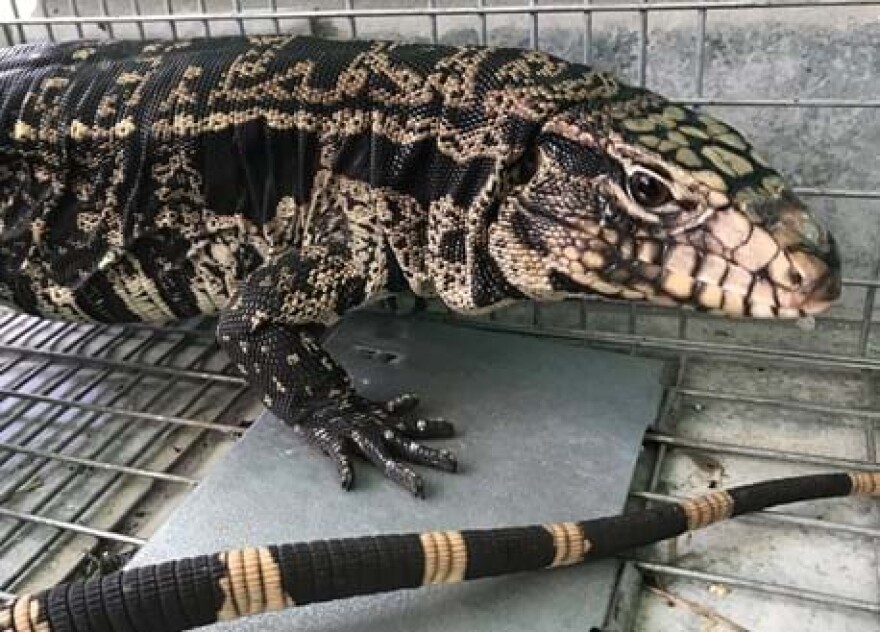The Argentine black and white tegu lizard will be up for discussion this week at a Florida Fish and Wildlife Conservation Commission meeting. This comes as wildlife officials in South Carolina approved regulations to end the possession, sale, import, and breeding of the highly invasive species.
The South Carolina Department of Natural Resources unanimously approved the order last week, which is awaiting finalization from the General Assembly.
The South Carolina regulations say people currently possessing tegus will be allowed to keep them if they register and chip them within 120 days of the rule becoming final, which will likely be in May. Within that same time period, tegus may be bought, sold or transferred but may not be bred, imported or released in the state.
Elise Bennett, an attorney with the Center for Biological Diversity, said in a press release that these "bold steps" from South Carolina are reassuring, as the nonnative reptiles continue to wreak havoc on Florida’s ecosystems.
“South Carolina is adopting this rule just in the nick of time,” said Bennett. “With Florida cracking down on ownership of invasive tegus to protect its own native wildlife, commercial markets are likely to shift to nearby states with the weakest laws, putting those states’ wildlife at risk.”
FWC officials are expected to discuss adopting a rule Thursday that will prohibit ownership of tegus as pets, but will continue to allow breeding and exporting through 2024.
If Florida joins Alabama and South Carolina in creating rules on tegu possession, it could potentially send a flood of the highly invasive lizards to surrounding states, like Georgia.




